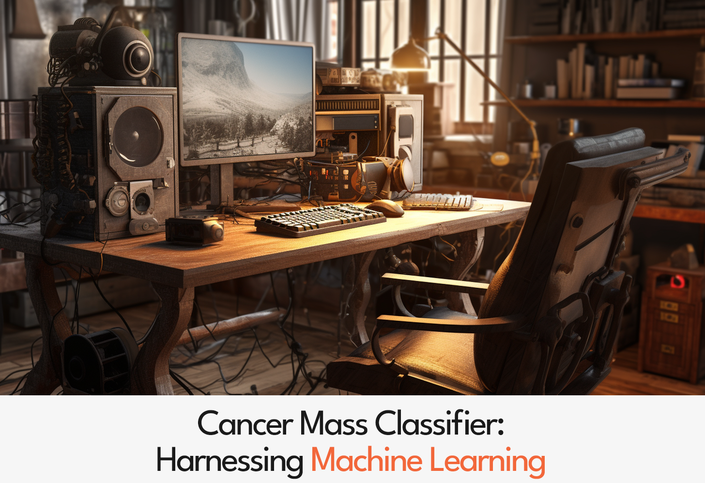
Cancer Mass Classifier: Harnessing Machine Learning
The "Cancer Mass Classifier: Harnessing Machine Learning" course is a comprehensive program designed to equip learners with the knowledge and skills to build accurate machine learning models for classifying malignant and benign cancer masses. The course covers essential topics such as data preprocessing, model building using SVM (Support Vector Machine) and logistic regression algorithms, and techniques for improving model accuracy through tuning methods.
The course begins with an introduction to the dataset containing malignant and benign cancer masses. Students will learn how to preprocess the data, including handling missing values, normalizing features, and performing feature selection techniques to enhance the quality of the dataset. Through hands-on exercises, learners will gain proficiency in using Python libraries such as Pandas and Scikit-learn for data preprocessing.
In the subsequent modules, students will dive into building machine learning models for classifying malignant and benign cancer masses. They will explore SVM, a powerful algorithm for binary classification, and learn how to train and evaluate an SVM model using the preprocessed dataset. Additionally, learners will explore logistic regression, another widely used algorithm for binary classification, and build a logistic regression model to classify cancer masses.
The final part of the course focuses on improving model accuracy through tuning methods. Students will discover techniques such as hyperparameter tuning and cross-validation to optimize the performance of their models. They will gain insights into evaluating model performance metrics, including precision, recall, and F1-score, and learn how to interpret the results to make informed decisions for model improvement.
By the end of the course, learners will have a comprehensive understanding of the entire workflow of building a cancer mass classifier using machine learning. They will be proficient in preprocessing cancer mass datasets, building SVM and logistic regression models, and employing tuning methods to enhance model accuracy. This course empowers individuals with the necessary skills to contribute to cancer research and diagnostics by harnessing the power of machine learning.
Your Instructor

Alexandra Kropf is Mammoth Interactive's CLO and a software developer with extensive experience in full-stack web development, app development and game development. She has helped produce courses for Mammoth Interactive since 2016, including the Coding Interview series in Java, JavaScript, C++, C#, Python and Swift.
Mammoth Interactive is a leading online course provider in everything from learning to code to becoming a YouTube star. Mammoth Interactive courses have been featured on Harvard’s edX, Business Insider and more.
Over 12 years, Mammoth Interactive has built a global student community with 4 million courses sold. Mammoth Interactive has released over 350 courses and 3,500 hours of video content.
Founder and CEO John Bura has been programming since 1997 and teaching
since 2002. John has created top-selling applications for iOS, Xbox and
more. John also runs SaaS company Devonian Apps, building
efficiency-minded software for technology workers like you.
